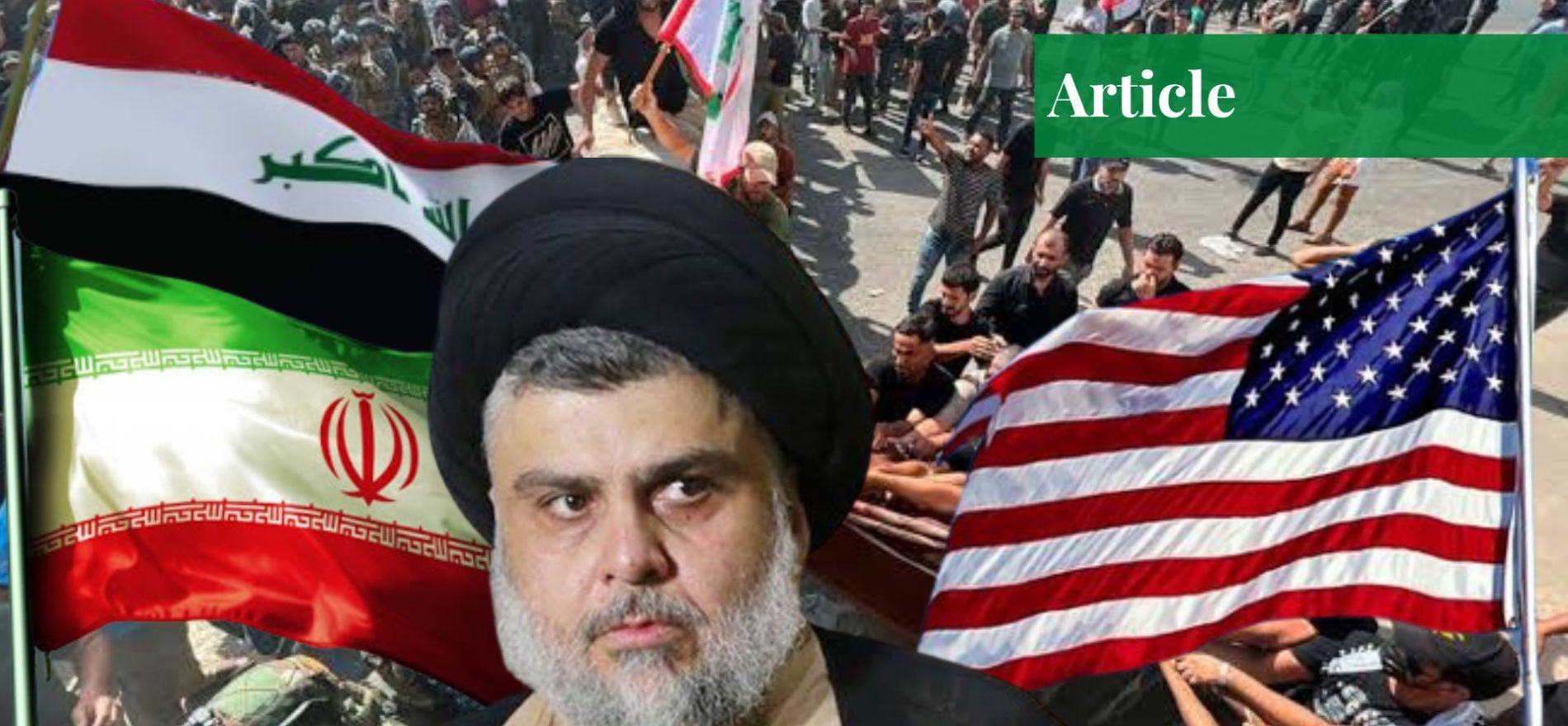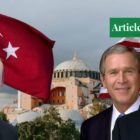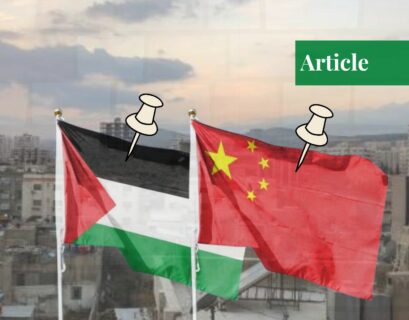Aamina Ikram is currently pursuing her degree in international relations from International Islamic University. Her areas of interest lie include Middle Eastern politics and espionage operations.
Introduction
A stalemate had enveloped the political horizon in Iraq for the past ten months, following the conclusion of the 2021 elections held in October. The election results came in favor of Muqtada al-Sadr, who succeeded in securing a 73-seat majority in the 329-seat Iraqi Parliament. Nevertheless, the failure of al-Sadr to become the prime minister and consequently, form a majority national government led the country into a blind alley.
The political arena of Iraq was set on fire soon after the Iranian-backed Shia politician Mohammed al-Sudani became nominated for the premiership by the Coordination Framework. The announcement came amid volatile political transformations in Iraq, which metamorphosed the situation entirely. The Sadrist movement was ignited yet again, soon after which the supporters of Muqtada al-Sadr bombarded the parliament building to halt the Parliament session, which was supposed to address the issue of choosing the next prime minister for the country.
Presently, massive protests and demonstrations are being observed across the whole country, prominently in Baghdad, against the candidacy of al-Sudani, calling him a pawn playing at the hands of foreign powers. Civil strife is likely to be born if a consensus is not reached between the two adversaries, which seems to be likely. Whether public outrage will be enough to curtail the constitutional process and bring amendments in the Transitional Administrative Law and the 2005 Constitution of Iraq, imposed by the USA and Britain, remains at hand.
The Failure to End the Doctrine of Consensus Governments
Iraq continues to be in a constant conflictual atmosphere in the post-Saddam period which ended in 2003, mainly because of the engraved ethno-sectarian cleavages in the political system and lack of a centralized majority government. For the past 15-16 years, Iraq has been craving a majority government that can cater to the public demands.
Al-Sadr pledged to break the logjam of consensus-based governments and insisted on the dire need for a majoritarian government for Iraq. Most Iraqi people stood with him, for he promised to end the consensus doctrine, which always brought with it a lack of accountability, corruption, and inefficient government. Muqtada al-Sadr joined the Iraqi Communist Party to form an alliance termed “Saairun” (moving forward), whose basis lies in “secular-oriented” politics. The coalition gained the most votes in the general elections of 2021.
After gaining the majority in the October elections, al-Sadr required a tripartite alliance to form the government. He collaborated with the Kurdistan Democratic Party headed by Massoud Barzani and the Sunni Taqaddum Coalition headed by al-Halbusi but was unable to succeed.
Judicial interference, backdoor gambles, and the use of political violence by the opposition sucked the momentum from al-Sadr’s efforts to assemble a majority from the fragments of parties in the Parliament. Al-Sadr and his MPs resigned from the Parliament in June to step away from a political process that, according to them, was the biggest obstacle to democracy.
Protests Enter the Green Zone of Iraq
On 27 July, two days after al-Sudani’s name came to streamline, thousands of people marched towards the highly fortified area housing foreign missions and government buildings. In the blink of an eye, the parliament building was breached and came under the control of protestors. After one day, the protest was called off by Muqtada al-Sadr on the ground that “their message had been delivered.”
The call by al-Sadr didn’t supposedly work for after two days, the protestors invaded the building again. This time, however, they were ready for a long sit-in at Iraq’s Parliament, demanding early elections and dissolution of the Parliament. The protest couldn’t last long and was called off again on 3rd August.
The Coordination Framework and Iranian Influence
The Coordination Framework, which occupies the largest bloc in the Parliament containing Iranian-backed groups and militia, selected Mohammed al-Sudani for Iraqi premiership on 25th July 2022. The elected member, al-Sudani, holds a diverse portfolio, serving in various government positions. He has served as the minister of human rights, minister of labor and social affairs, minister of trade, minister of migration and displacement, and minister of finance
Presently, he is supervising the Strategic Planning Committee and the government program. The announcement of al-Sudani being elected for premiership came as a blow to Muqtada al-Sadr, who then revitalized his followers to besiege the Parliament until the constitution gets overhauled. The Coordination Framework’s State of Law leader and former prime minister, Nori al-Maliki – a great rival to al-Sadr – is believed to hold all the power while al-Sudani would merely serve as his puppet.
There is also a controversy that a rift developed between different blocs of the Coordination Framework mainly because Nori al-Maliki was against this decision. However, the State of Law party has issued a statement confirming its approval of the selected candidate. The Coordination Framework advocates a consensual government system under which the country has been run for decades. The demand for a majority government and anti-Iranian sentiments has peaked in Iraq, which is a grave threat to the leadership of the Coordination Framework, funded by Iran and following its lead.
The Sadrist Movement and a Possible Civil Strife
The Sadrist movement played a significant role in thwarting the US forces from Iraqi soil. Its popularity skyrocketed in 2016 when it openly negated the concept of fragmentation in society and formulated a secular manifesto. Al-Sadr assumed the sobriquet “kingmaker” after he abandoned his status as a Shia religious cleric and presented himself as an Iraqi nationalist. Whether Muqtada al-Sadr can gather and mobilize enough people for the cause of constitutional reforms is a burning question debated among the international community.
From the history of Iraq, it can be deduced that aggravating public protests were able to dislodge the sitting head of state. The first widespread unrest engulfed Iraq as a domino effect of massive demonstrations—known as the Arab Spring—which spurred the whole Middle East against the continued suppression of Arab people by their rulers.
Economic stagnation and corruption had gnawed at the entire political system of Iraq. The protest in October 2019 was strong enough to pressure the then Prime Minister Adel Abdul-Mahdi to resign from his office. The demonstrations were held against the existing government primarily for political corruption, high unemployment, and lack of public services. If al-Sudani becomes the prime minister, he should become ready to counter booming public outrage and distorted public image.
Role of the US
The English Constitution of Iraq
Since 2003, ethno-sectarian cleavages have been engraved in Iraq’s social and political hemisphere, the weight of which lies with the 2005 constitution and the Transitional Administrative Law formulated by the USA. The constitution gave proportional space to every religious and ethnic group in the Parliament, which has fueled further turmoil in Iraq.
According to it, the seat of the prime minister is reserved for a Shia Muslim; only a Kurd can hold the office of President, while the speaker of the Parliament is always a Sunni. The USA invaded Iraq in 2003 under the Bush Doctrine to “liberate” it from an authoritarian regime and bring democracy, but it was a mere gait aimed at securing America and reducing possible threats from the Middle East. Muqtada al-Sadr has demanded an overhaul of this constitution, rejecting participation in a political system that is not based on merit and majority rule.
Sectarian Tug of War
The Bush Doctrine entered Iraq under the false banner of democracy and a de-Ba’athification program, making sectarian politics more divisive and bloody. The “ethnic rift” has jeopardized Iraq’s domestic political stability, subjecting it to political fiasco and misbalance of power. The discourse of democracy initiated by the US to dislodge Saddam Hussein never uplifted or matured Iraq politically; it only served to segregate the country based on religion.
Under the Ba’ath regime in Iraq, a centralized political system existed, which became dissolved and was replaced by a consensual system leading to a confrontation between Sunnis and the Shiites—major sects of Islam. The core of dissolving the centralized system by the US was to shield Iraq from Iranian influence by exploiting the ethnic elements and dividing the nation based on Sunni-Shia lines.
When Muqtada al-Sadr emerged as a national, the Iraqi people gave him the accolade of “kingmaker” for taking such a secular stance in a fundamentalist country. It is yet to be seen in which direction the wind blows in Iraq in uncertain circumstances.
Conclusion
Iraq has always been an unstable country having a political elite that exploits ordinary people in the name of democracy. The ten years of the Iraq War and the US humanitarian intervention have further aggravated the situation. The current political unrest has opened a new discourse on changing Iraq’s constitution and political system.
If the Iraqi people, under the leadership of Muqtada al-Sadr, can put enough pressure on the administrative bodies and establishment and position them in their favor, Iraq will be able to take a new direction. The opposition, under the umbrella of the Coordination Framework, is ready to give a tough time and will not easily give way to this revolution. Erik Durschmied in his book Bloody Revolution rightly describes that:
“Revolution is always made in the name of freedom; it is directed against the tyranny of the few for the rule of the many.”
If you want to submit your articles and/or research papers, please check the Submissions page.
The views and opinions expressed in this article/paper are the author’s own and do not necessarily reflect the editorial position of Paradigm Shift.


















